School Psychology—Master of Arts and Certificate of Advanced Graduate Studies (M.A./CAGS)
Earn your Master’s in School Psychology and Certificate of Advanced Graduate Studies at Georgian Court University in a program that’s approved by the National Association of School Psychologists (NASP) and boasts a very high graduate pass rate on the Praxis™ School Psychologist exam.
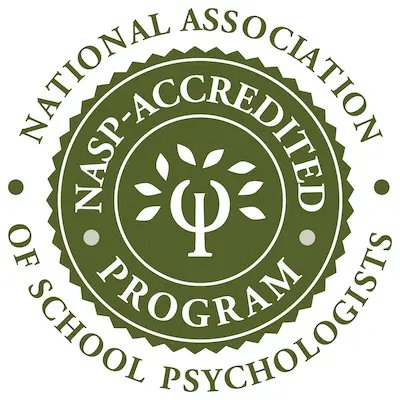
Fully Accredited by NASP!
Georgian Court University’s School Psychology Program has earned Full Accreditation from the National Association of School Psychologists — valid August 1, 2025 through August 1, 2032.
Program Highlights
Degree
3 years
Delivery
Cost
$995/credit
Total credits
Time of entry

Master’s in
School
Psychology
If you’re searching for a meaningful career that gives you the opportunity to help children and adolescents achieve their best, look no further than school psychology. School psychologist jobs are in high demand and offer excellent pay and work-life balance—all reasons that this career is ranked among the Best Jobs by U.S. News and World Report.
Apply your training
in the real world
The Master’s in School Psychology at GCU incorporates a social justice perspective to the education of our students in comprehensive, evidence-based skill development in the areas in assessment, counseling, consultation, prevention services, and implementation science. The program prepares you to address the psychological, academic, and behavioral needs of students so they can excel. Our program features numerous field experiences that enable you to apply your training in the real world. This includes a community service project as early as the first semester, 300 hours of practicum in the schools, and a culminating 1,200-hour internship.
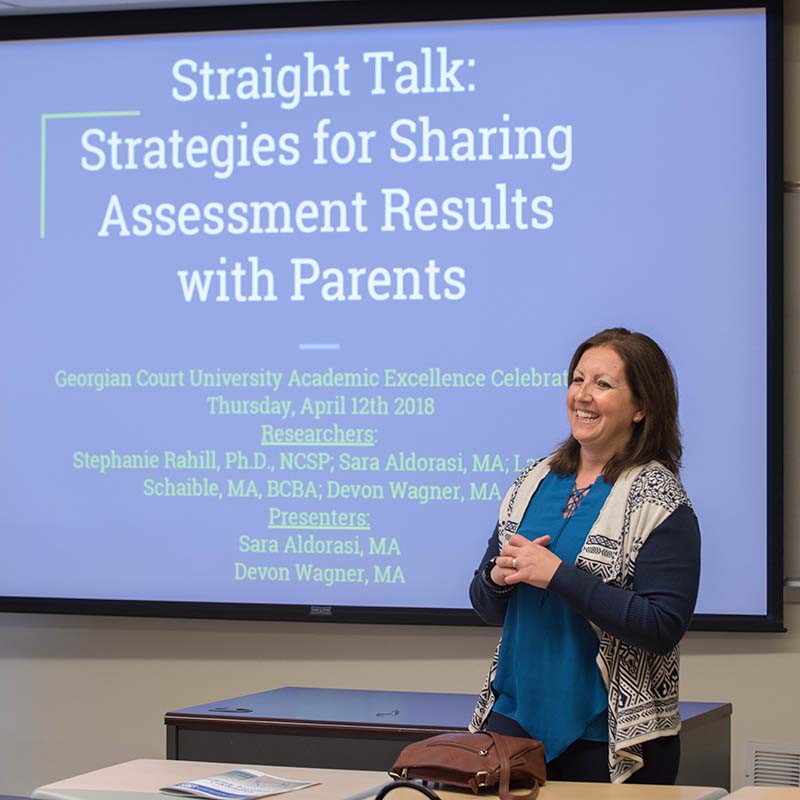
School psychologists bring specialized expertise in mental health, behavior, and learning to help students succeed in school and in life. In addition to working directly with students, school psychologists partner with families, teachers, administrators, and other professionals within the school team to support positive outcomes for students — academically, socially, behaviorally, and emotionally.
Our NASP-approved program has two levels: a Master of Arts in School Psychology is awarded after you complete 32 to 35 credits. Then you go on to complete the 36-credit specialist-level Certificate of Advanced Graduate Study (CAGS) coursework, which is vital for meeting requirements for New Jersey Department of Education certification and becoming a practicing school psychologist. This part of the program requires a 300-hour practicum and a 1,200-hour externship. Our students are also eligible for the Nationally Certified School Psychologist (NCSP) credential.
Master of Arts/Certificate of Advanced Graduate Studies (M.A./CAGS) Program Information
Curriculum
GRE no longer required for applicants
The Master of Arts in School Psychology and the specialist-level Certificate of Advanced Graduate Study (CAGS) in School Psychology comprise an integrated sequence of coursework, practicum, and externship experiences. A total of 66 (30 MA/36 CAGS) semester hours, including a 300-hour practicum and a 1,200-hour externship, are required. NOTE: Slight adjustments to the curriculum will be in place beginning Fall 2026.
Master of Arts in School Psychology
| First Year | ||
|---|---|---|
| Fall Semester | Credits | |
| SPS5401 | Sem in Child & Adolescent Development | 3.0 |
| ABA503 | Experimental Analysis of Behavior 1 | 3.0 |
| SPS5402 | Seminar: Psychopathology of Childhood | 3.0 |
| SPS5190 | Sem in Psych Services in the Schools | 3.0 |
| Credits | 12.0 | |
| Spring Semester | ||
| SPS5104 | Data-BasdDec-MkingI:Beh&Soc/EmoAss&Intrv | 3.0 |
| SPS5110 | Multicultural Issues in Sch Psych | 3.0 |
| SPS5700 | Statistics & Research Design I | 3.0 |
| SPS5910 | Beh Assessment in Edu & Comm Settings 1 | 3.0 |
| Credits | 12.0 | |
| Summer Semester | ||
| SPS5105 | Sem in Ethical Conduct for Sch Psych 1 | 3.0 |
| SPS5102 | Asmnt & Intvntn of Reading Difficulties | 3.0 |
| SPS5406 | School Crisis Prevention & Intervention | 3.0 |
| ABA504 | Philosophy of Behaviorism 1, 2 | 3.0 |
Note: At the completion of these 33 to 36 credits, students will sit for the comprehensive examination (SPS5000). With a passing score, students receive their M.A. in School Psychology and are eligible to move on to advanced-level coursework. |
||
| SPS5000 | MA Comprehensive Exam | 0.0 |
| Credits | 12.0 | |
| Total Credits | 36.0 | |
- 1
Indicates coursework that is part of the 18- to 21-credit ABA sequence.
- 2
Elective; necessary for BCBA© credential
Minimum levels of performance are outlined in the School Psychology program handbook. Students are evaluated and expected to maintain expected levels of performance in their academic coursework, field placements, and professional characteristics. Failure to maintain minimum levels of performance across any of these areas may lead to dismissal from the program. The program handbook is available on the program website and the program BlackBoard site.
Certificate of Advanced Graduate Study (CAGS)
| Second Year | ||
|---|---|---|
| Fall Semester | Credits | |
| SPS6100 | Introduction to Counseling Skills | 3.0 |
| SPS6103 | Data-BasdDec-MkingII:CogAsmnt&Intvntn | 3.0 |
| SPS6106 | Prac I: Consultation & Collaboration | 3.0 |
| SPS6911 | Beh Interventions in Edu & Comm Settings 1 | 3.0 |
| Credits | 12.0 | |
| Spring Semester | ||
| SPS6109 | Data-BasdDec-MkingIII:PsychoEdAsmnt&Intv | 3.0 |
| SPS6405 | Sem Adv Counseling withi Children & Adol | 3.0 |
| SPS6801 | Practicum II: Advanced Practice | 3.0 |
| SPS6912 | Adv Beh Chng Procdr in Edu&Comm Settings 1 | 3.0 |
| Credits | 12.0 | |
| Summer Semester | ||
| SPS6403 | Neuro Basis of Educational Disorders | 3.0 |
| ABA502 | Measurement & Experimental Design 1 | 3.0 |
| Credits | 6.0 | |
| Third Year | ||
| Fall Semester | ||
| SPS6200 | Externship I | 3.0 |
| Credits | 3.0 | |
| Spring Semester | ||
| SPS6202 | Externship II | 3.0 |
| Credits | 3.0 | |
| Total Credits | 36.0 | |
- 1
Indicates coursework that is part of the 18- to 21-credit ABA sequence.
Minimum levels of performance are outlined in the School Psychology program handbook. Students are evaluated and expected to maintain expected levels of performance in their academic coursework, field placements, and professional characteristics. Failure to maintain minimum levels of performance across any of these areas may lead to dismissal from the program. The program handbook is available on the program website and the program BlackBoard site.
View the full curriculum and admission requirements.
Faculty

Alicia Gialanella, Ph.D.
Assistant Professor of Psychology and Counseling
Department of Psychology and Counseling
School of Arts, Sciences, and Education
Mercedes 201
agialanella@georgian.edu
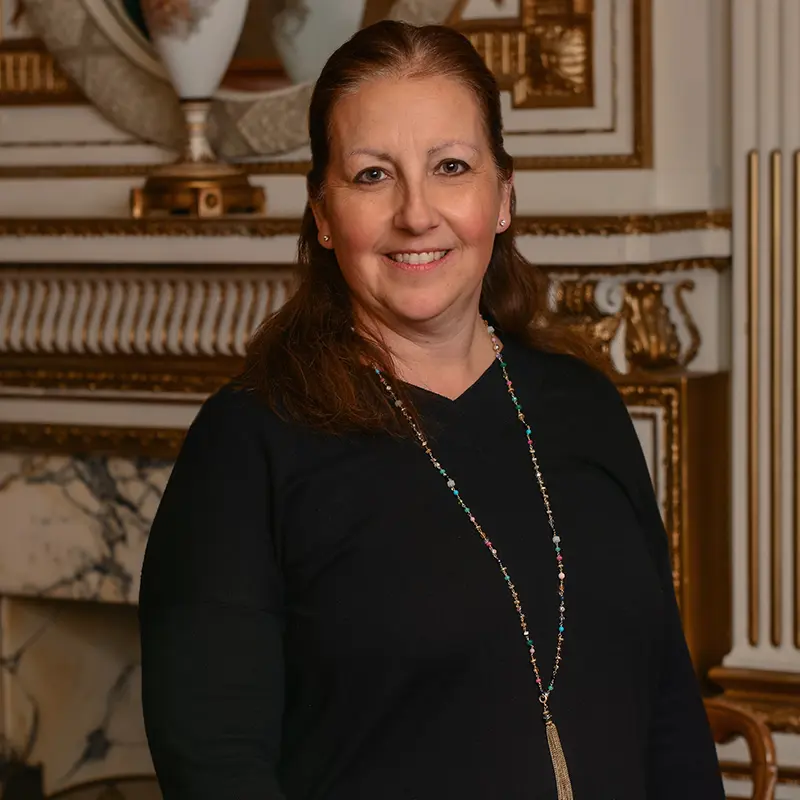
Stephanie Rahill, Ph.D.
Professor of Psychology and Counseling
School Psychology Program
School of Arts, Sciences, and Education
Farley Center (109)
srahill@georgian.edu
732-987-2420
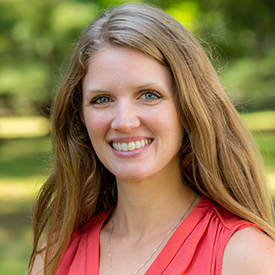
Heather Tacovsky, Psy.D.
Assistant Professor of Psychology and Counseling
School of Arts, Sciences, and Education
htacovsky@georgian.edu
Related Programs
If you’re interested in our Master’s degree in School Psychology, here are other programs at GCU you might want to explore:
Why Earn Your School Psychology Master’s Degree at GCU?
As a NASP-approved school psychology program, we provide a rigorous, hands-on curriculum that prepares you for success. Our track record speaks for itself: over the last five years, graduates of our school psychology master’s degree have a very high pass rate on the Praxis™ School Psychologist exam.
Here are more reasons why Georgian Court offers one of the best school psychology master’s programs in New Jersey.
Faculty With Diverse Specialty Areas
Our classes are taught by full-time faculty (not teaching assistants) who bring diverse professional expertise and research areas to the coursework. Small classes allow for personal attention and meaningful interactions with instructors and peers.
Field Experiences and Research Opportunities
The curriculum for the Master’s in School Psychology at GCU includes field experiences almost every semester that have you working with children and youth in real school settings. You’ll also have opportunities to engage in impactful research and present your work, often working directly with faculty.
Emphasis on Social Justice
Our program prepares you to promote social justice as a school psychologist through culturally responsive professional practice, empowering families and communities and ensuring equity and fairness for all children and youth.
Doctoral Degree in School Psychology
In addition to the master’s degree, Georgian Court also offers a Psy.D. in School Psychology program that enables school psychologists to expand their practice and move into more advanced practice settings.
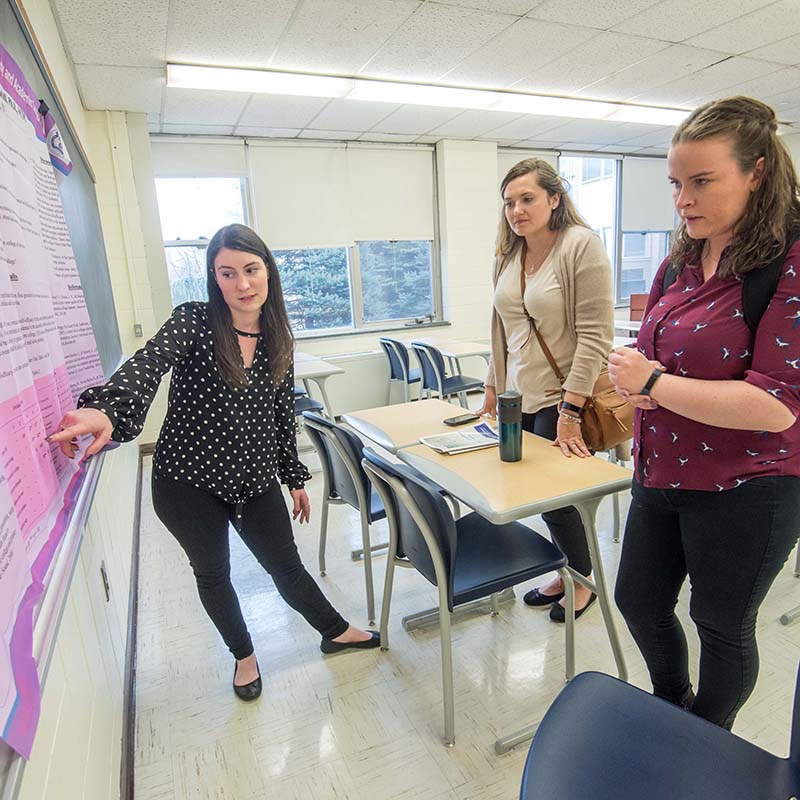
What Can You Do With a School Psychology Degree?
For decades, there has been a shortage of school psychologists in the United States. As a result, there’s a high job placement rate for graduates of school psychology programs. In fact, a recent report found that over 99% of school psychology graduates find a job within one year. For a variety of factors—including salary, job market, and work-life balance—the most recent U.S. News and World Report ranks school psychologist #19 in Best Social Services Jobs and #27 in Best STEM Jobs.
School Psychologist Jobs
Most school psychologists work in public schools, but that’s not your only option: preschools, community centers, and private schools also hire Master’s in School Psychology graduates. If you earn your doctoral degree in school psychology, you find opportunities to work in medical settings and private practice as well. Depending on where you work, school psychologist jobs may focus on counseling, assessment, crisis preparedness, and other activities.
School Psychology Salary
How much does a school psychologist make? According to U.S. News and World Report, the median pay for school psychologists nationally is $78,200. The U.S. Bureau of Labor Statistics reports that the average school psychologist salary in New Jersey is $99,170. Keep in mind that salaries will vary depending on the type of school in which you work (elementary, secondary, or college).
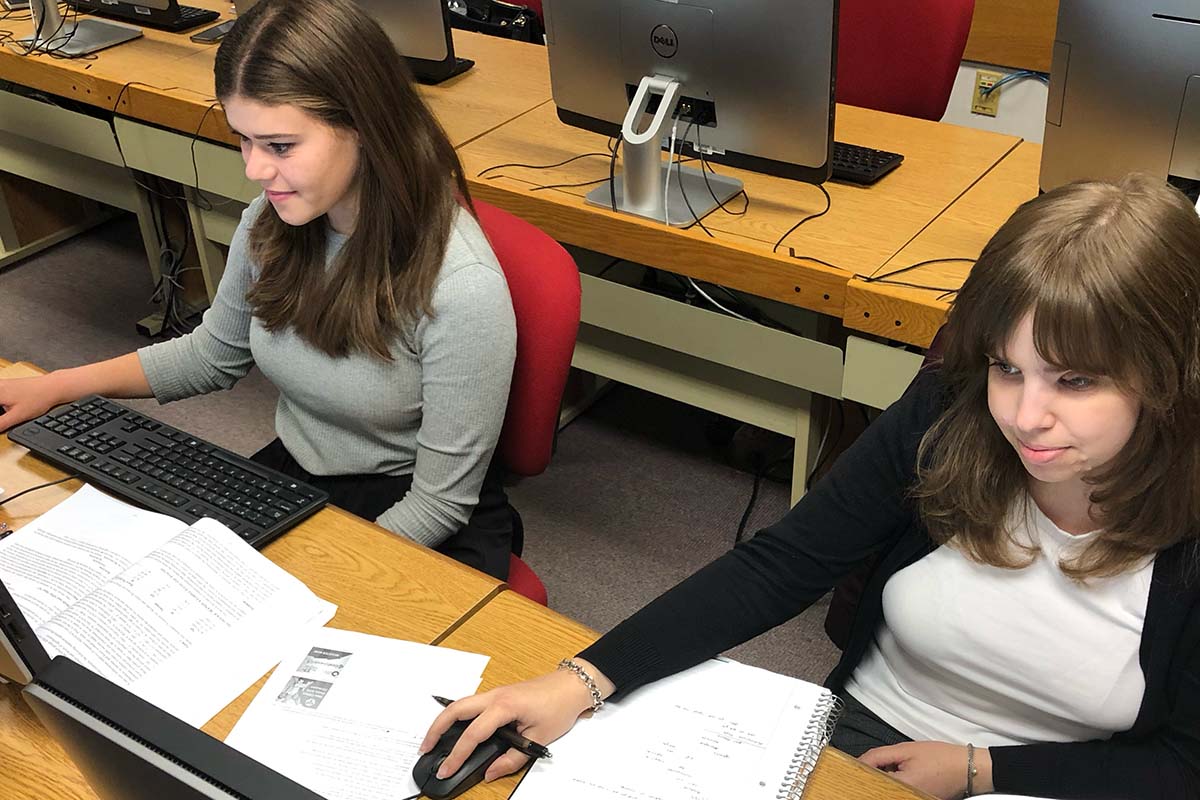
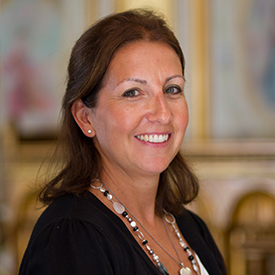
School of Arts & Sciences
Request More Info
IMAGINE YOUR FUTURE AT
GEORGIAN COURT
LEARN HOW TO APPLY
We make applying easy. Get all the details on what you need to start your journey at GCU.
Visit Us
Seeing is believing. Take a look at our campus by driving, walking, or exploring our virtual tour.
GET MORE INFORMATION
Reach out to us and learn more about all GCU has to offer you.
